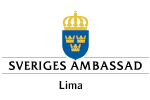![]() People can benefit not only by being on the blockchain themselves but also from having their things on the blockchain.Peruvian economist Hernando de Soto sees incredible potential in the blockchain giving those living in poverty access to capital by leveraging homes and other assets.
People can benefit not only by being on the blockchain themselves but also from having their things on the blockchain.Peruvian economist Hernando de Soto sees incredible potential in the blockchain giving those living in poverty access to capital by leveraging homes and other assets.
In Mystery of Capital, his bestselling book, de Soto estimates that there is $10tn in “dead capital” in the world.If those assets – many of which are owned by the poor and powerless in countries with unreliable rule of law – were registered on the blockchain, de Soto and others believe that economic opportunities could be unlocked to provide value for those most in need.
Even in more developed nations, blockchain-based land title registries might reduce friction in real estate markets, save consumers money and help struggling industrial communities reboot themselves more quickly.Another hardship faced by those who can afford it least is the cost and uncertainty of migrants sending remittances across borders to their families in other countries.
Small amounts are often not accepted by the existing intermediaries and even from the larger amounts transmitted, middle-men tend to carve off substantial amounts in fees.In contrast, the peer-to-peer nature of bitcoin allows transactions to be processed for mere pennies, letting remittances flow more freely and permitting a greater percentage of funds to benefit needy families in home countries.
Similarly, election monitoring could be fundamentally transformed by distributed ledgers.Simple timestamps of the numbers of votes cast at a given polling location could make ballot stuffing significantly more difficult for those who would otherwise steal elections.
....
Read more on the website of Tech City News


